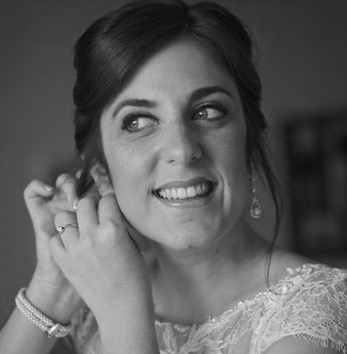Last week, we all witnessed what is called: Media War. The media war in unannounced and it doesn't end with a truce- it is an ongoing battle with social networks and websites as the battlefield. It occurs when two sides of a conflict of sort compete for the public's attention through the various media. During Operation Pillar of Defense, the Media War was very noticeable, and many of us took part in it, trying to expose Hamas' lies and supporting Israel. But it did not start last week. It is an ongoing process in which, so far, Israel is on the losing side…
I remember hearing about the Gaza war (also known as Operation Cast Lead) for the first time: It was December 2008, and I was on a vacation in London. While riding the train, observing the passengers and playing the common game of trying to guess their story, I noticed an old man reading the daily newspaper. It was folded, so I was able to read one of the articles. The title said “IDF in bombing in Gaza.” There was a dramatic photo of a Palestine woman crying, kneeling and raising her bloody hands towards a ray of light; a dead body of a child was lying beneath her. Next to the picture, there was a quote by the mayor of Sderot, a city in Israel that is constantly under the attack of missiles, which said, “I'm proud to be an Israeli.” I couldn't stop thinking about what I had just read. It looked bad. It made the IDF and the Israeli people seem like despicable murderers.I couldn't believe the vicious act I had just read about. I started thinking about other people, non-Israeli people. It only made sense that their first reaction to this article would be to feel sorry for the poor woman, and to condemn the mayor of Sderot. In the next few days, this described attack was the center of public discourse
Having been born and raised in Israel, I had constantly been protected by soldiers. Throughout my childhood, I admired the IDF. After serving in the IDF I can say from firsthand experience that the army does not attack without purpose- they are the Israeli Defense Force. Unfortunately, the media oftentimes provides a skewed perspective and portrays the IDF as aggressors. While I myself was aware that there was surely much more to this attack than what the news reported, I kept in mind that the average British citizen knows only what he hears and reads. I can't begin to explain the despair we feel every time we watch the international news. It hurts to know that some people receive only partial information.
Our hands are tied when in comes to the greatest war of all: the media war. Our army may be one of the strongest, most powerful armies in the world, but we are helpless when it comes to media publication.In the age of instant messaging where whoever publishes last- doesn't count, people don't care about the circumstances. They're only looking for the results. We are always in a hurry, and need to get as much information as possible as quickly as possible. The newspapers compete for readers, and so they choose headlines that will capture our attention. Even thought the body of that article about the Gaza War was neutral and showed what lead to that attack, I'm sure most people will never know. We don't have time. We read headlines, and that's that
I'm not trying to make excuses, and I’m not saying that every decision made by the Israeli government is the right one. I'm just saying that it's natural to feel sorry for the little boy standing in front of a big tank. It's the easiest thing to do. But have you ever stopped thinking what brought that tank over there? Have you ever noticed the boy is holding a stone in his hand? Have you ever taken a moment to try and think what is not shown in the photos you see? Maybe there are hundreds of kids holding stones and standing in front of that tank. Maybe those kids threw stones at innocent people. Maybe some were killed and that tank came to stop this killing. Maybe those young kids are protecting a number one target of a terror organization. Maybe not. We'll never know.
Remember that headlines and pictures are meant to target readers’ emotions- they don’t always show the full truth. As Karl Popper once said, “Put everything to question. Things will be true only when no one can question them anymore.” Since you can't see beyond the limits of what you are shown, or look into five different websites at a time, all I can recommend, and beg you to do, is this: Whenever you hear or read about something that seems to lack explanation, check yesterday's news. It may help you see things more clearly…




















 More news and opinions than at a Shabbat dinner, right in your inbox.
More news and opinions than at a Shabbat dinner, right in your inbox.